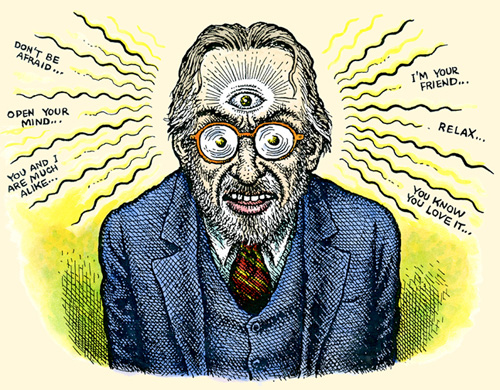 Guy Kawasaki over at Holy Kaw! posts about the various team members and office spaces at his publisher, Portfolio, which is an imprint of Penguin. He’s put up a bunch of photos he took inside the Manhattan office building where all the book work goes on.
Guy Kawasaki over at Holy Kaw! posts about the various team members and office spaces at his publisher, Portfolio, which is an imprint of Penguin. He’s put up a bunch of photos he took inside the Manhattan office building where all the book work goes on.
It’s all more or less just fine… until we get to the photo of the art department (although I don’t trust smiling publishers). The poor art people are given those brutally unprivate low-walled cubicles to work in. All management teams use the exact same excuses for these open work areas: fosters team spirit, allows easy direct communication over cubicle walls, lets the window light spread throughout the work area.
The real reason management installs low-rise cubicles is for observation and control. It puts all employees, even the most dedicated and creative ones, in the position of monitoring each others’ work habits and arrival/departure times. Low-rise cubicles are an insult to employees and do not foster team attitudes. Professionals build teams by sharing their skills, not by watching each other.
Here’s Kawasaki’s book at Amazon. And the cover really just truly sucks. It’s about how to convince people to do the things you would like for them to do in business. It probably helped convince the art designers to work in this cubicle hell. His next book should be about how to smash furniture.

